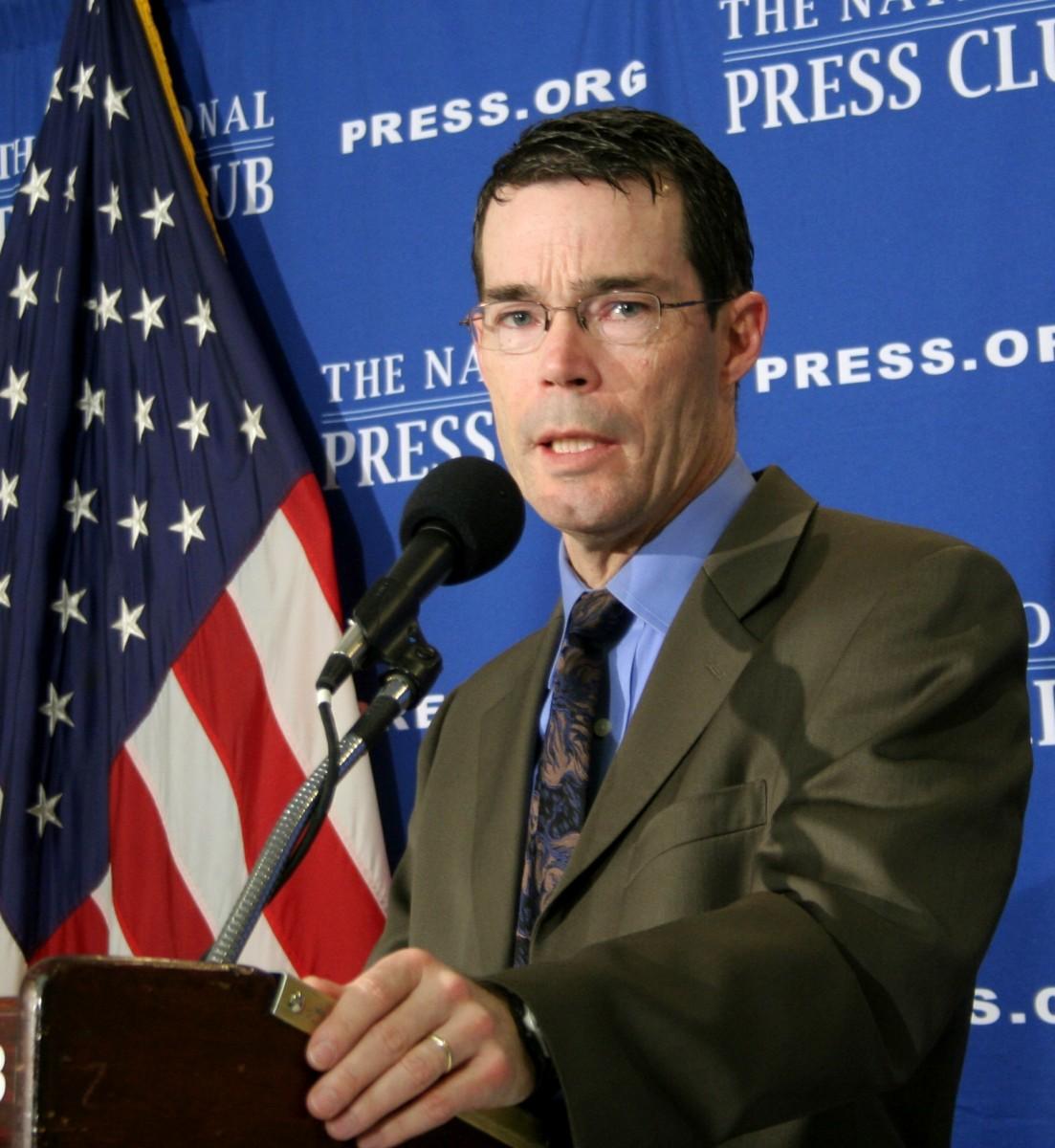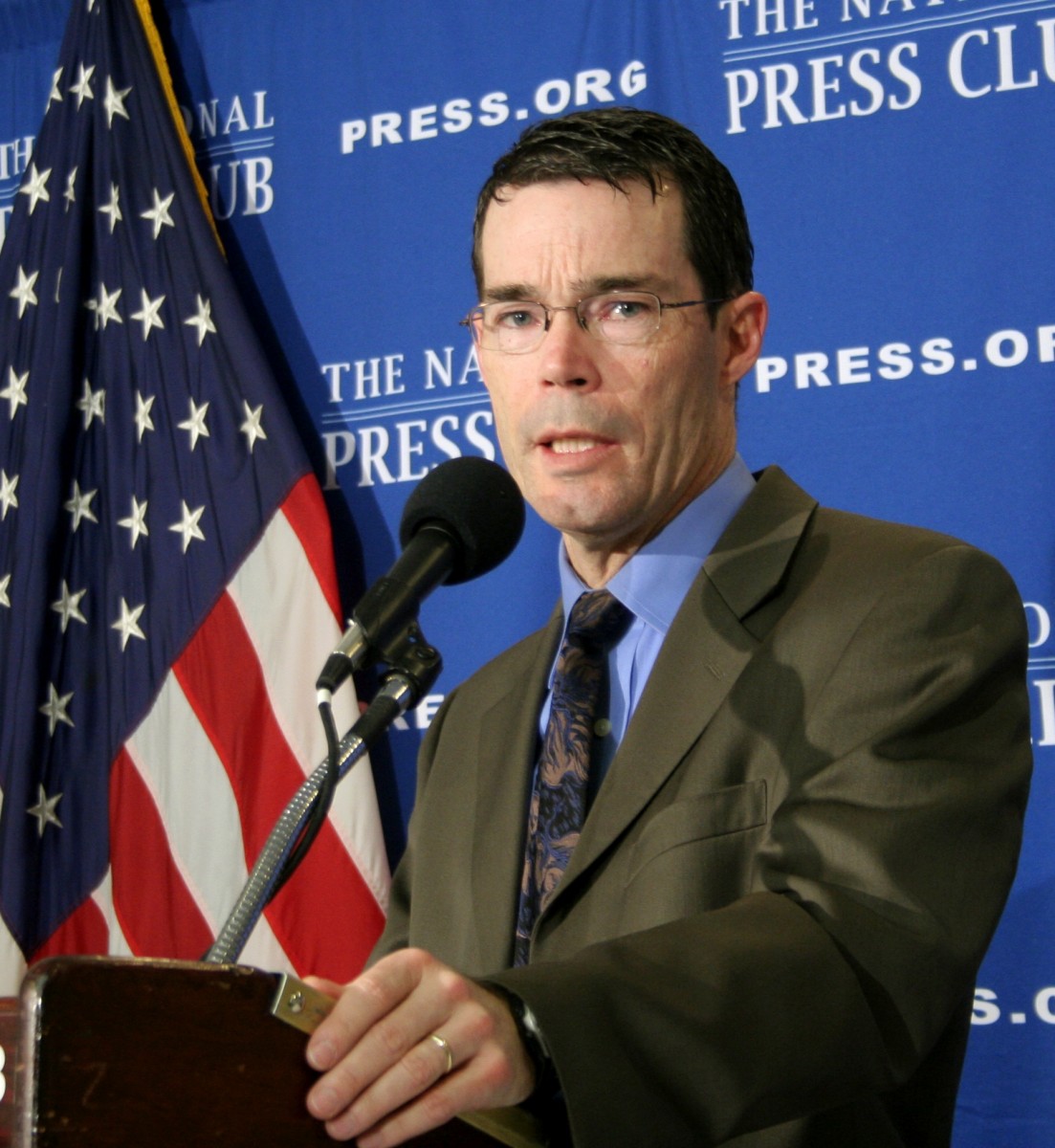WASHINGTON—The tragedy at Sandy Hook Elementary School last December when 20 first graders were gunned down as well six adults, has rekindled an old debate on the usefulness of gun control legislation. Emotions run high on both sides of this issue. Unfortunately, an examination of the media discussions and public debates on proposed legislation reveal that they are typically long on opinions and short on evidence.
There exists little in the way of objective studies to guide policymakers and legislators.
Dr. Daniel Webster wants to change the discussion on gun control legislation so there is more use of objective data. Webster is a professor at the Johns Hopkins Bloomberg School of Public Health, where he directs the Center for Gun Policy and Research.
Webster is also the co-editor of the book Reducing Gun Violence in America: Informing Policy with Evidence and Analysis. The work grew out of a two-day summit in mid-January at John Hopkins University that assessed the evidence for policies intended to reduce gun violence. The participants were world leading experts on gun violence and its prevention, the Second Amendment and legal aspects, and public opinion. The group sought to separate myth from reality on this issue, according to Webster.
The National Press Club invited Webster to discuss the evidence for reducing gun violence and the effectiveness of policies being considered, on March 15.
Evidence: Universal Background Checks
The recommendation that has the most public and legislator support is establishing a background check system for virtually all gun purchases. Universal background checks and handgun purchaser licensing and strong oversight of gun dealers are correlated with fewer guns diverted to criminals, said Webster. He analyzed 2004 survey data from a national survey of state prison inmates and found that among those who had committed a crime with a handgun, nearly 80 percent had acquired their handgun via unlicensed private sellers, who are exempt from conducting background checks.
“My research has shown that when states enact laws to increase gun seller and purchaser accountability including universal background checks … far fewer guns are diverted from the legal to the illegal market,” Webster said. The states with the weakest gun control laws attract criminals seeking handguns, facilitating interstate trafficking of firearms.
The criminal may find someone to purchase the gun(s) for him, called a straw purchase. Currently, there are no laws that outlaw straw purchases or gun trafficking, said Webster. “Non-licensed sellers of firearms have no obligation to ensure prospective purchasers have passed a background check and can legally possess firearms,” he said.
A federal law to close the loophole of allowing gun purchases at gun shows without background checks is not looking very promising for passage. In recent days, the U.S. Senate Judiciary Committee debated a proposal for making background checks a requirement for all gun purchases, including private sales by unlicensed individuals at gun shows. On March 12, the committee supported the bill by 10 to 8 along a strictly party-line vote. The hope many had for bipartisan support for at least universal background checks did not happen.
The ranking Republican on the committee, Iowa Senator Chuck Grassley, was quoted in the Los Angeles Times, “Mass shootings would continue to occur despite universal background checks. Criminals will continue to steal guns and buy them illegally to circumvent the requirements.”
But this fact Grassley cited, that criminals will still acquire guns illegally, overlooks Webster’s evidence that the number of guns diverted to criminals is likely to be greater without background checks for all purchases.
According to the Times, Sen. Charles E. Schumer (D-N.Y.), who is the author of this bill, questioned Grassley’s logic. We wouldn’t oppose a law against murder or robbery, because the bad guys will get around them anyway, Schumer said.
Public Opinion
Grassley and his Republican colleagues on the Judiciary Committee voted against public opinion that strongly favors universal background checks. Webster coauthored an article that appeared in January in The New England Journal of Medicine, which reported a whopping 89 percent of Americans support requiring a background check system for all gun sales to ensure the purchaser is not legally prohibited from having a gun. The sample size for this overall statistic was 2,703 from a January 2013 national survey of residential addresses that covered 97 percent of U.S. households.
Gun owners were not far behind with 84 percent support. Even 74 percent of NRA members support universal background checks.
Need for Stricter Laws
Webster disagrees with the frequent comment that “We don’t need to pass new gun laws, we just need to enforce current ones.” He says, “Federal gun laws are currently written in ways that make it very difficult to hold firearm sellers, whether licensed dealers or private sellers, accountable if they sell firearms to criminals or traffickers.” For example, as noted above, it’s hard to prosecute persons guilty of straw purchases without mandatory background checks at gun shows.
Further, laws have weakened law enforcement’s powers through the Tiahrt amendments passed in 2003. Named after former Congressman Todd Tiahrt (R-Kan.), these provisions effectively removed from the public record a government database that traced guns recovered in crimes back to the retail dealers. “Tracing was used mostly to help police catch criminals linked to recovered guns,” according to the Washington Post.
Gun store owners and manufacturers didn’t like the implications when in 1995, Glenn L. Pierce of Northeastern University, using Bureau of Alcohol, Tobacco, Firearms, and Explosives (ATF) data, found that only one percent of gun dealers were responsible for the sale of the majority of the guns seized at crime scenes, 57 percent. They said that selling traced guns is not proof of wrong doing, according to the Post.
The Tiahrt provisions freed gun dealers from having to do a physical inventory of their firearms, thereby making gun sellers less accountable to the law. They also require the FBI to destroy the results from the background checks within 24 hours, hampering law enforcement’s investigation into the legality of the purchase.
Thus, the Tiahrt amendments, and later broadening in 2004, lessened the federal oversight, reducing the risk for licensed gun sellers to engage in illegal or irresponsible practices that facilitate gun trafficking, straw purchases, and persons prohibited from owning firearms.
Webster was a co-author of a study of a large gun dealer in Milwaukee, Wis. that had sold more guns traced to crimes than any other gun dealer in the United States. After the enactment of the Tiahrt amendments, their study found that the number of guns diverted to criminals doubled with this dealer. Their findings were also consistent with other studies that find that policies that affect gun dealer accountability correlate with diversion of guns to criminal.
17-Year Ban on Gun Research Lifted
There is a reason for the dearth of gun studies. Due to the urging of the gun lobby, Congress froze all federal government funded research on gun-caused injuries or deaths. After the Centers for Disease Control and Prevention (CDC) did a study in the 1990s that found among other findings that homicides occur significantly more often in households with guns, the NRA and its allies lobbied Congress, which in 1996 cut the CDC’s budget by $2.6 million—the cost of the study.
The CDC got the message not to conduct any more studies of this nature. Congress also directed the CDC in its funding bill that “none of the funds … may be used to advocate or promote gun control.”
In the wake of the Newtown, Conn. shootings, President Barack Obama issued a memorandum on Jan. 16 that lifted the ban of 17 years on government research on the causes of gun violence.
“There are approximately 30,000 firearm-related homicides and suicides a year, a number large enough to make clear this is a public health crisis. … research on gun violence is not advocacy; it is critical public health research that gives all Americans information they need,” Obama’s plan states.
The Epoch Times publishes in 35 countries and in 21 languages. Subscribe to our e-newsletter.






